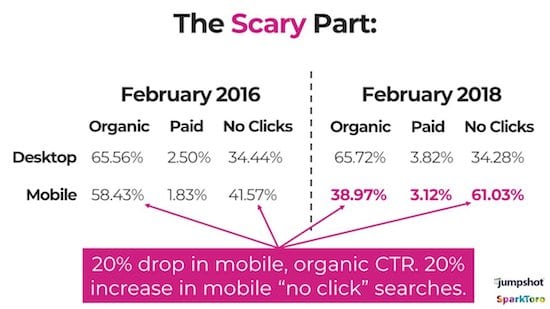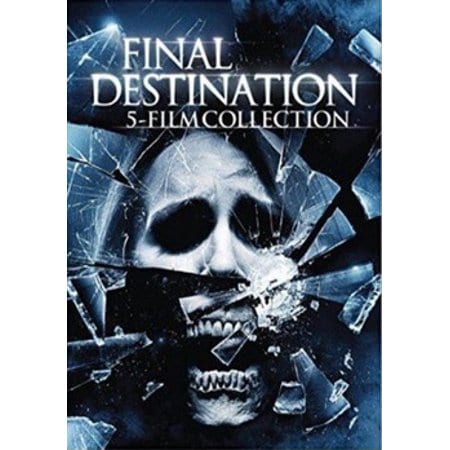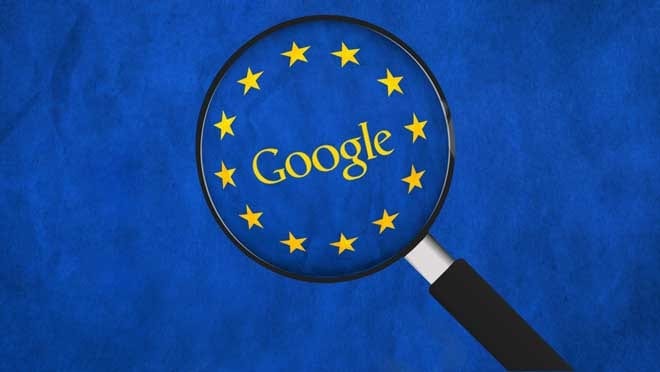
Like the “Dead Parrot Sketch” of Monty Python fame, the pronouncement that SEO has been officially deceased, (“is no more”, “has ceased to be”, “is bereft of life,” “rests in peace,” and is, in fact, an “ex-parrot”), has been oft-repeated over the past 19 years.
In our version of the Python sketch, the owner of the petrified parrot is none other than Rand Fishkin, the SEO trailblazer and founder of SEOmoz, now known simply as Moz, (perhaps the last bastion of traditional SEO). Today, Rand is the CEO of social influence measurement company SparkToro and his insights and reporting on the state of SEO have been quoted in live hearings involving Google in the U.S. Congress. And yes, the incredulous pet shop owner in the sketch, wielding all the excuses, is Google.
The obituary for SEO is far from exaggerated. It has been written at regular intervals:
• when the keywords meta tag was decommissioned.
• when the “no follow” tag was introduced.
• when any of several algorithmic updates dubbed Panda, Penguin, Hummingbird, Pigeon, Possum, (but still no Parrot), were implemented.
• when manual, human-edited ratings were introduced.
• when Google Knol was cancelled (or Google Correlate, Insights for Search, Trendalyzer, Places, Urchin, SideWiki, SearchMash, Zeitgeist, Real-Time Search, et al. (See killedbygoogle.com).
• when Google’s referral keywords were no longer passed to site owners in Analytics.
• when predictive searches began to auto-complete search query strings.
• when Google AdWords ads were indistinguishable from organic links.
• when Google ads moved from the “right rail” to the top and bottom of the results page.
• when Google Map listings expanded from a 3-pack, to a 7-pack and a 10-pack gradually pushing organic listings “below the fold.”
• when structured data that fed “Rich Snippets” were invited and initiated, providing less inducement for searchers to move beyond the Google Search Engine Results Page (SERP).
• when Featured Snippets, including Instant Answer Boxes, Paragraphs, Lists or Tables, appeared and pushed natural search results even further down the page.
• when PAAs, “People Also Ask” Frequently Asked Questions with toggled answers pushed natural search results even further down the page.
The “laundry list” of how traditional SEO has been gradually debilitated by the sword of a thousand cuts is one thing. The truest measure of SEO’s vital signs requires a more statistical accounting — “by the numbers.”

Last month, for the first time in history, the majority of visitors to Google.com chose NOT TO CLICK on ANY of the underlined blue links that led from the search page. This majority did not click on paid links (search ads), nor on organic links (free listings), nor on geo-local map links.
The largest slice of the modern Google pie-chart now belongs to a new datapoint – the “NOCLICK” metric – where the searcher chooses to remain on Google, get answers, transact business, click on no external links and go nowhere.
What hell is this? Evidently, for many searchers, it is heaven. At least 51% of the time, searchers are finding the answers they seek without leaving the Google landing page. Clearly, if Google’s Knowledge box, Featured Search Snippets and “People Also Ask” FAQs satisfy a searcher’s request on arrival then an “exit strategy” to visit a Website is somewhat superfluous.
The historic development of “NOCLICK” bears the clear markings of anti-competitive behavior. Here we have a monopoly not simply in terms of search engine market share (as of August, 2019, Google owned a 92.37% search engine market share, compared to Bing at 2.63% and Yahoo at 1.8%.) Rather, in this case, we have a monopoly on information itself.

If most people no longer find it necessary to use Google to locate the information they seek, and instead think of Google as the final destination, then clearly the role of Google as a “search engine” has changed. The organic search engine optimization industry is poised to reach $80 billion in revenue in 2019 surpassing the watermarks set in 2016 and 2018 when businesses were spending $65.26 and $79.27 billion on search engine optimization, respectively. Can the integrity of the SEO investment be preserved?
On September 9, 2019, 48 state attorneys general, led by Texas Attorney General Ken Paxton, launched an investigation into Google’s potential violations of antitrust laws. California and Alabama are the only two states that didn’t join the Texas investigation. Google recently built a large new data center in Alabama while California is home to Google’s headquarters and has proven itself adept at shielding in-state producers from competition.
If we are now at the point of eulogizing SEO, there is no better minister than Rand Fishkin.
The founder of Moz, the annual MozCon conference, the Web 2.0 awards dedicated to SEO achievement, and the emcee of Whiteboard Fridays, a weekly Webcast that delivered a sermon on SEO best practices, Rand earned the search industry’s accolades as the “Wizard of Moz.”
However, unlike the wizard who appeared behind the curtain in the “other” Emerald City, this wizard has earned a one-of-a-kind reputation for “radical transparency.” How many Founder/CEOs do you know that would publish a line graph of their annual salary, unabashedly reveal the balance of their bank accounts, expose how values can be routinely compromised in a startup’s trajectory, or publicly share their business and marketing plans?

His transparent book, Lost and Founder: A Painfully Honest Field Guide to the Startup World, debunks a great many of the myths and misconceptions surrounding the motivations and mores behind startup creation, financing and new product development. Among other disbeliefs, he unveils the notion of the MVP in Lean Design, which puts forth that a product launch need not produce a Most Valuable Product out of the gate, but merely the minimum to be desired with a Minimally Viable Product. In this case, Rand advocates for an Exceptionally Viable Product for initial, public release. The last chapter of Lost and Founder contains a practical rundown of Cheat Codes on the many options that exist to raise the startup ratio for success.
We sat down with Rand at this turning point in search engine history to understand the options for Search and SEO on the road ahead.

Seattle24x7: For the first time in history, more than half of all visits to a Google SERP have resulted in searchers remaining at Google rather than proceeding to an organic or paid search listing as a referral. What was your reaction to this metric?
Rand: I wasn’t particularly surprised to see this happen. Google’s strategy for many years now has been to compete directly with publishers in order to both expand their opportunities for monetization and to serve searchers with faster results. The deeper implication is the removal of opportunity for publishers and the rest of the Internet. Google drives more than 2/3rds of all referral traffic (from my analyses of a dataset by Jumpshot), and that means when Google enters a new field or provides instant answers that replace a website in their results, the incentives to create content and to serve users degrades.
Seattle24x7: Google has seemingly been grooming content owners to facilitate this eventuality by inviting (or soliciting) structured data that facilitates PAAs and Featured Snippets? Would you concur with the assessment that Google has encouraged or induced content owners to provide the same information that can or does now appear on the Google SERP and pre-empts a visit to the originating Website?

Rand: Yes, absolutely. They play a bit of the Prisoner’s Dilemma game: either you provide Google with the structured data they want, or your competitors will. And then, even if you “win” in the normal algorithmic rankings, Google will always place the result that displays in the Google-friendly markup format they want at the top. It’s a massively powerful incentive, and unless there’s collective action from website owners (which Google knows won’t happen), everyone’s vying for that little trickle of traffic the search engine is still willing to send.
Seattle24x7: The analysis of companies like Jumpshot appears to confirm that traffic to Google-owned properties has increased disproportionately over outside properties? Which examples are the most egregious? Is this development a case of hiding in plain sight? Said differently, how did Google think they could get away with what is clearly anti-competitive behavior?
Rand: Egregious examples are everywhere, but I find the placement of YouTube over every other video provider or host to be one of the most obvious and anti-competitive. One day in July of 2014, Google suddenly shifted their video ranking system so that YouTube went from ~50% of video snippets to more than 95%. For anyone hoping to compete with YouTube in online videos, it was a clear signal from Google — if you’re not owned by us, you don’t get to rank.
Google thinks they can get away with it because, very simply, they have so far. They became a huge lobbyist in their early years, they support political campaigns across the spectrum, and they count on politicians to keep them from antitrust action (as the Obama administration did in the 2013 investigation). I think they didn’t foresee the current political climate where politicians and citizens of all stripes have negative views of tech monopolies and their dollars can’t buy enough influence to keep the antitrust investigations at bay. Whether this produces tangible results, however, is hard to say.

Seattle24x7: Google’s 93% market share is almost beyond-the-pale in terms of market dominance. It is also not something that can happen overnight. If you were to create a timeline of these market maneuvers, what would be the milestones on that timeline?
Rand: In the early days, I’d argue that Google largely won on the strength of their product. It wasn’t until just before they went public (2006/7) that they started crossing the line from search engine to publisher, and even then, very few of us noticed or worried about it (I certainly didn’t in those years). The launch of Bing, Microsoft’s stab at real competition with Google, fell flat, and a few years later, Cuil did too. I think those failed efforts heralded a Google-dominated future, and the 2013 antitrust investigation ending in a politically motivated non-result probably bolstered Google’s execs to believe themselves largely immune to oversight.
Seattle24x7: You have long been a champion of transparency in your business pursuits, as exemplified in your blog posts over the years, in Whiteboard Fridays, and in your book, Lost and Founder. More recently, you have observed that Google has not only been reluctant, but has refused to answer direct questions about search behavior on its engine such as those questions posed by Congress. To what do you attribute Google’s lack of responsiveness? Are the answers that have been provided ambiguous or misleading?

Rand: Ambiguous, misleading, and sometimes outright lies. I attribute that to the lack of consequences. Google believes they won’t be held accountable, and that they have nothing to lose.
Seattle24x7: Congress has been weighing in on the subject of Google and oversight. Your name came up in the hearings.
Rand: A few members of Congress mentioned some of my research in their questions to Google.
Seattle24x7: In recent weeks, the Attorneys General of all fifty states, joined forces in launching an anti-trust investigation against Google. Can you share any thoughts on what you believe could be the outcome of such an investigation?
Rand: My hope is that Google doesn’t just receive a fine, but is instead forced to change some of their anti-competitive moves (like prioritizing Google properties above anyone/everyone else’s, even when those results aren’t as good by their own algorithm’s standards).

Seattle24x7: You have organized and appeared at search conferences around the world. Why does the European Union seem to be so far ahead of the United States in regulating search engines, and in penalizing Google with fines in the billions of dollars? Is there a dynamic between Google and the EU that is fundamentally different than with the U.S. government?
Rand: The EU does not allow the kind of direct monetary contributions that US politics does. In Europe, Google’s paid political support of candidates would be considered bribery and is illegal. For that reason, and because the EU has a generally more strict definition of what’s anti-competitive, Google’s suffered more blows there than in the US (though, honestly, the fines are pocket change compared to their earnings).
Seattle24x7: If Google is found guilty of anti-trust violations, what practical solutions could there be? What are the ramifications if a percentage of Google search queries are redirected to other search engines?
Rand: I strongly doubt the government would enforce redirection of queries. China might, but the US doesn’t tend to work that way. Practical solutions, however, could include breaking apart Google from YouTube or Android, maybe even Google Maps or Google Flights/Hotels. They could also enforce a policy of not directly competing with publishers, which might be very interesting, i.e. Google can maintain a monopoly in search, but it cannot use that monopoly to benefit its own results.
Seattle24x7: Longtime search marketing writer, analyst, organizer and critic, Danny Sullivan, has been hired by Google as a kind of ombudsman or liaison? Danny has defended his independence with those who have questioned same. Do you have an opinion on Danny’s moving to the “other side of the desk?” Can he be (and has he thus far been) an impartial arbiter in these matters?

Rand: I really wish he was, but so far, the evidence I’ve seen points the other way. Honestly, I wish it was Danny giving Google a hard time on these issues rather than me. He was always so much more eloquent and thoughtful, and his balanced approach really resonated with me when, for example, he railed against Google’s hypocrisy on [referral] keywords (no longer provided) or on skewing ads to be more and more subtle. I’d love to have that Danny Sullivan back on our side instead of theirs.
Seattle24x7: With a 93% market share, does Google putting its thumb on the scale upset the integrity of search marketing data? Does it skew search results in a way that impacts decision-making by marketers?
Rand: Yeah, absolutely. When Google has a monopoly, their moves dictate how everyone has to respond. They introduce new structured data and we either adopt it or lose out to the competition. They take away keyword data and everyone loses it. They reward certain types of ads, everyone has to buy them. That’s not necessarily at the crux of anti-competitive behavior, but it certainly can feel frustrating to a marketer whose professional life is governed entirely by Google.
Seattle24x7: Amazon has assumed the “challenger position” as a search engine replacing Microsoft and others in the chase? Does Amazon exhibit any similar “walled garden” behaviors or tendencies?
Rand: Yeah, Amazon’s not exactly the champion you might hope for. They are biased toward products that are more profitable for them (often those owned by Amazon itself), they keep out competitors, they have designs on entering thousands of other markets. Honestly, they look nearly as scary as Google when it comes to behemoths gobbling up opportunity for the already-big-and-powerful over the small-and-striving.
Seattle24x7: Where does Facebook stand in the shifting landscape of the search ecosystem?
Rand: Right now, they’re a non-player in search, and I don’t think that’s changing. Facebook’s business is focusing on learning more about everyone, keeping people inside their walled garden, and extracting value through a powerful ad ecosystem, rather than search results.
Seattle24x7: Finally, if the face of organic search and the SEO practices that optimize organic search have been disfigured beyond recognition, how has the mission of SEO practitioners changed?
Rand: There’s a lot more opportunity than ever before for marketers who can create content to influence searchers through zero-click queries that end on the SERP. And there’s slightly less opportunity for clicks overall, and significantly less in particular verticals where Google’s decided to make their own properties dominate. But organic search still sends 66% of all web referrals — more than 10X what Facebook or Instagram or YouTube or Twitter send. Yes, the SEO game has changed, but no, it hasn’t gone away. [24×7]
Visit SparkToro at http://sparktoro.com/





















